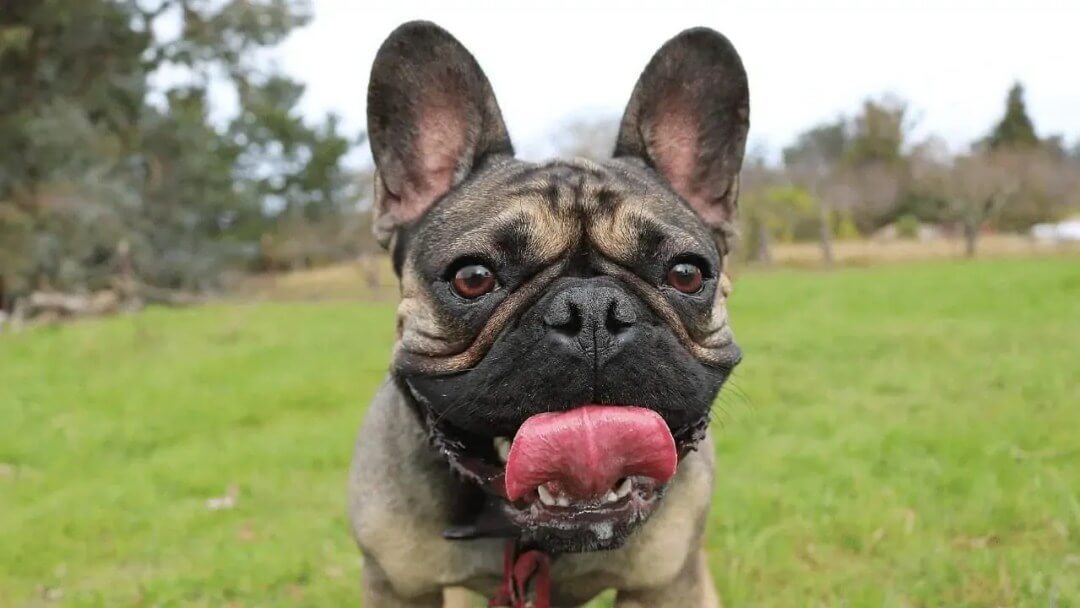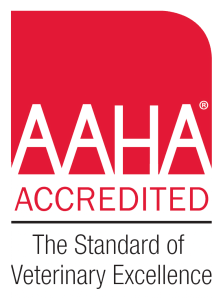
We > wait all year for the warm weather of summer. We all love spending the long, sunny days of summer outdoors, especially in the company of our furry friends, but hot weather can spell danger to pets. Please follow our summer pet safety tips below to help keep your pets safe during these hot summer months.
The summer of 2020 in Southeastern Wisconsin, is looking to be the warmest we have seen in a while. We are experiencing, day after day of warmer than average temperatures, with no real break in sight. As the heat and humidity continue to plague our area, our furry friends may become more susceptible to heat-related illnesses.
The more significant risk, probably, comes with indoor pets; pets that spend the majority of their time inside, then they can go outside. These pets are not used to the high humidity and warmer temperature, thus putting them at the most significant risk of overdoing it. Even the healthiest pets can suffer from , heatstroke, and sunburn if they are not prepared for the health effects caused by the heat/humidity. Heatstroke can be fatal if not treated promptly.
Below are some simple precautions to follow to help prevent your pet from overheating.
Visit the Vet
All pets should have an annual wellness exam. Just as with people, certain health conditions (elderly, those with heart/lung disease or chronic conditions) can make pets more susceptible to heat.
Overweight pets and both dogs (i.e., Pugs) and cats (i.e., Persians) have a higher risk of problems with warm-weather exercise. They cannot pant as effectively and therefore, can’t cool themselves as readily.

- Discuss with your veterinarian any warm weather risks you may have for your pet, including any travel plans.
♦ Control Parasites — In our area, all dogs should be tested annually for and . You will want to discuss and get started on year-round heartworm and flea/tick prevention program appropriate for your pet.

♦ Ask how to recognize signs of heatstroke and what to do if you suspect a heat-related illness in your pet.
Symptoms of overheating in pets include:
- Elevated body temperature – above 104 degrees F
- Bright red gums
- Excessive panting or difficulty breathing,
- Excessive drooling
- Lack of coordination/Inability to move/Collapse
- Extreme weakness/Lethargy
- Confusion/ Loss of mental awareness.
- Bloody diarrhea/Vomiting
- Seizures
- Death
♦ If you think your pet is experiencing a heat-related emergency:
- Get your pet into the shade/a cooler environment,
- Begin cooling measures using fans to circulate air, room temperature water – not ice-cold water, to lower the body temperature
- Call the hospital or a pet emergency facility immediately.
- Make preparations to transport your pet to a medical facility.
♦ Have your pet spayed or neutered; if not done so already. With people and dogs spending more time outside, incidents of “dog bites” are known to increase in the warmer months. Spaying or neutering your dog reduces the likelihood that it will bite and provides many other essential health benefits for your pet.
♦ Make sure to have your pet microchipped. This will ensure that you and your pet get separated from each other and that you will be reunited again.

- At a minimum, your pet should wear a collar with identification.
Keep Pets Groomed
Grooming is especially important in warmer weather. Brushing your pet often during the summer will help get rid of excess or matted fur, which can contribute to overheating and prevent skin problems caused by excessive heat.
♦ Ask your veterinarian if your pet would benefit from a warm-weather haircut or sunscreen.
- Giving your dog a lightweight summer haircut may prevent overheating. The fur coats of some breeds help them handle the heat; the different layers of fur act as an “air conditioner.” Clipping of those breeds is not recommended.
- If you do shave your dog, take them down to a one-inch fur length, never to the skin. This will give your dog some protection from the sun.
♦ Be sure that any sunscreen or insect repellent product you use on your pets is labeled specifically for use on animals.
Keep Pets Home

♦ Leave your pets at home, if possible when you need to go out and about.
- If it’s hot outside for you, it’s even hotter for your pet.
- Provide different temperature zones within your house for your pet’s comfort.
- If your pet is an outdoor one, make sure they have a shady place to get out of the sun throughout the day.
- Shade from a tree in the AM may not be in the PM as the sun moves across the sky.
♦ Never leave your animals alone in a parked vehicle. On a hot day, a parked car can become a furnace in no time, even with the windows open; this could lead to fatal heatstroke.

- While you might think a car ride beats your dog getting bored at home, leaving a beloved pet inside your car can quickly get dangerous. Your car’s interior can reach temperatures up to 20 degrees higher than outside in as little as 10 minutes.
- That means your car can get up to 90 degrees on what feels like a nice day only in the 70s or can soar well above 100 degrees during a regular summer day. That includes when you’re parked in the shade with the windows cracked.
- Leaving pets unattended in cars in extreme weather is illegal in many states, resulting in significant fines.
♦ Never leave your pet in a car, even if it’s running. The risks associated with pets in vehicles don’t end with heatstroke.
- A loose pet could crawl about in the vehicle and inadvertently release the parking brake or move the gear shift; into drive, reverse or neutral, would result in the vehicle starting to move. Your pet could be injured in a resulting collision, and the accident could injure unsuspecting bystanders.
DO NOT Over-Exercise
♦ Don’t walk, run or hike with your pet during the hottest parts of the day or on unusually warm days.
- The best times to exercise are the cooler hours of early morning or late evening.
- Avoid hot surfaces, such as asphalt, that can burn your pet’s paws.
- Don’t let your dog linger on hot asphalt. Being so close the ground, your dog’s body can heat up quickly, and sensitive paw pads can burn.
♦ Take frequent breaks. Bring enough water for both you and your pet.
♦ If your pet is overweight or has underlying health issues, consult your veterinarian before starting an exercise program for your pet.
Play Safe with your Pet in Summer:
Video Player
00:00
00:15
Pets and Parties
Everyone loves a cookout, thinking of taking Fido to a backyard barbeque or party? Remember that the food and drink offered to guests may be hazardous to pets. Most pet owners know that pets will eat almost anything and everything, so pet owners need to keep a close eye to prevent overindulging, which doesn’t just add to their waistlines but can be dangerous to their health.
♦ Talk to guests, especially children. Politely tell them if your pet has special diet needs or is allergic to certain foods and remind them of what foods are potential health risks to pets.
Below is a list of a few things to look out for:
- Keep all alcoholic beverages away from pets, as they can cause intoxication, which could lead to severe depression, coma, and even death.
- The snacks enjoyed by your human friends should not be a treat for your pet; any change of diet, even for one meal, may give your pet severe digestive upset.
- Common foods that are poisonous to pets and should be off the menu include: raisins, grapes, onions, chocolate and products with the sweetener xylitol
- Chip bags can result in loss of life as well; pets stick their heads in the bags and have been known to suffocate.

- Meat with bones — Real bones in food can be hazardous to pets as they can cause blockage or can splinter and result in severe damage to the bowel.
- Corn on the cob – Corn cobs can be a choking hazard and a big cause of intestinal obstruction.
- Foods with toothpicks or skewers – An overlooked or haphazardly discarded toothpick or skewer can pierce a hole in the intestine with disastrous results.
- Fruits with pits — Avocados, peaches/nectarines, or any other pitted fruit can be choking a hazard as well as a possible cause of intestinal obstruction; the seed inside, also, contains deadly cyanide.
- Food high in fat – Sausages or fat trimmed from steaks, etc. can cause severe inflammation to a pet’s pancreas.
- Ice cream – Ice cream or any other dairy product, for that matter, may not agree with all pets, especially if they have sensitive stomachs. Just like people, some pets can be lactose intolerant.
Pool / Water Fun

Do not leave pets unsupervised around a pool or other body of water -not all dogs are good swimmers.
Introduce your pet to water gradually and make sure they wear a pet floatation device when learning to swim or whenever on a boat.
Always rinse your dog off after swimming to remove salt, or river/lake water from its fur to prevent skin problems. Additionally, try to keep your dog from drinking the water it is swimming in. Pool water contains chlorine and other chemicals, while lake/river water contains various bacteria, algae, and parasites; all can and will cause stomach upset for your pet.
Fireworks aren’t Pet Friendly
Never use > around pets. Exposure to lit fireworks can potentially result in severe burns or trauma to curious pets, and even unused fireworks can be hazardous. Many fireworks contain potentially toxic substances such as , copper, chlorates, and other heavy metals that could pose a severe health threat to your pet.
Avoid Summer Pet Hazards:
Cleaning Products and Chemical Use
Commonly used rodenticides (mouse and rat baits) and plant food, fertilizers, and lawn and garden insecticides can be harmful to pets if ingested or can cause severe chemical burns to feet mouths/throats; so, keep them out of reach.

Use caution when walking your dog; steer clear of areas that you suspect have been sprayed with insecticides or other chemicals. If you use a lawn service, make sure they are aware that you have pets. Also, more countless plants can be toxic to pets. Make sure the plants in your yard/garden are safe for pets. Avoid cocoa bean mulch; it contains the same toxin found in chocolate.
Keep citronella candles, oil products and insect coils out of pets’ reach as well. Call your veterinarian or the ASPCA Animal Poison Control Center at (888) 426-4435 if you suspect your animal has ingested a poisonous substance.
Helpful Summer Advice for Pets:
Pets in Vehicles – other Safety Risks
Unrestrained pets can be seriously or fatally injured or even hurt you, in a collision or sudden braking situation. Also, they’re a distraction for the driver, which increases the risk of driver errors. According to the American Automobile Association (AAA), 2 out of 3 drivers that are pet owners in a survey admitted to engaging in distracting behaviors (playing with, feeding or petting their dog, or letting their dog sit in their lap) when pets are in the car…and according to the National Highway Traffic Safety Administration (NHTSA), approximately 20% of injury crashes involve distracted driving.
Most of us smile when we see a dog’s face happily hanging out a window; digging the ride and the smells wafting on the breeze, but this is a very risky venture for the dog for three reasons.

♦ One, it means your dog isn’t properly restrained – and we’ve already told you why that’s so important.
♦ Two, your dog is at high risk of eye, ear, face, and mouth injury from airborne objects when it’s got its face hanging out the window.
♦ Three, letting your dog hang any part of its body out of the window increases the risk that it could be thrown out of the vehicle during a collision. Your dog may lose its balance and fall out of the open window during an abrupt turn or maneuver or jump out of the vehicle to threaten another dog or a person.
And let’s not forget the severe dangers of driving with your dog in the bed of a pick-up truck.

It is very dangerous and illegal to drive with a dog in the back of a pick-up truck in some states. Not only can flying debris cause serious injury, but a dog may be unintentionally thrown into traffic if the driver suddenly hits the brakes, swerves, or is hit by another car. Using an appropriate-length tether may reduce the risk that your dog will exit the truck bed, but the tether could tangle, injure, or choke your dog.
Before you put your pet in the vehicle, ask yourself if you need to take your pet with you – and if the answer is no, leave your pet safely at home. If you must take your pet with you, please don’t become another statistic; only take your pets in the vehicle with you when you absolutely need to, and always properly restrain your pets while in the vehicle. This means dogs should ride either in the cab (in a crate or wearing a seat belt harness designed for dogs) or in a secured, well-ventilated crate in the bed of a pick-up truck.
Summer is an excellent time for you and your furry best friend to travel and enjoy the great outdoors, but it’s important to take time to know the hazards your pet could face and take some simple, common-sense precautions. This will ensure everyone has a summer, of fun!
About Brook-Falls
Brook-Falls Veterinary Hospital and Exotic Care is dedicated to providing quality care to all companion pets and exotic animals. Brook-Falls is a Menomonee Falls, WI-based full-service veterinary hospital with an extensive range of comprehensive medical, dental, diagnostic, and surgical services to meet the varying needs of all patients. Brook-Falls Veterinary also offers informational and educational media and seminars for pet owners by way of blogs, digital TV series (Expert Veterinary Television), e-books, whitepapers, infographics, and more.
For more information, contact Brook-Falls



